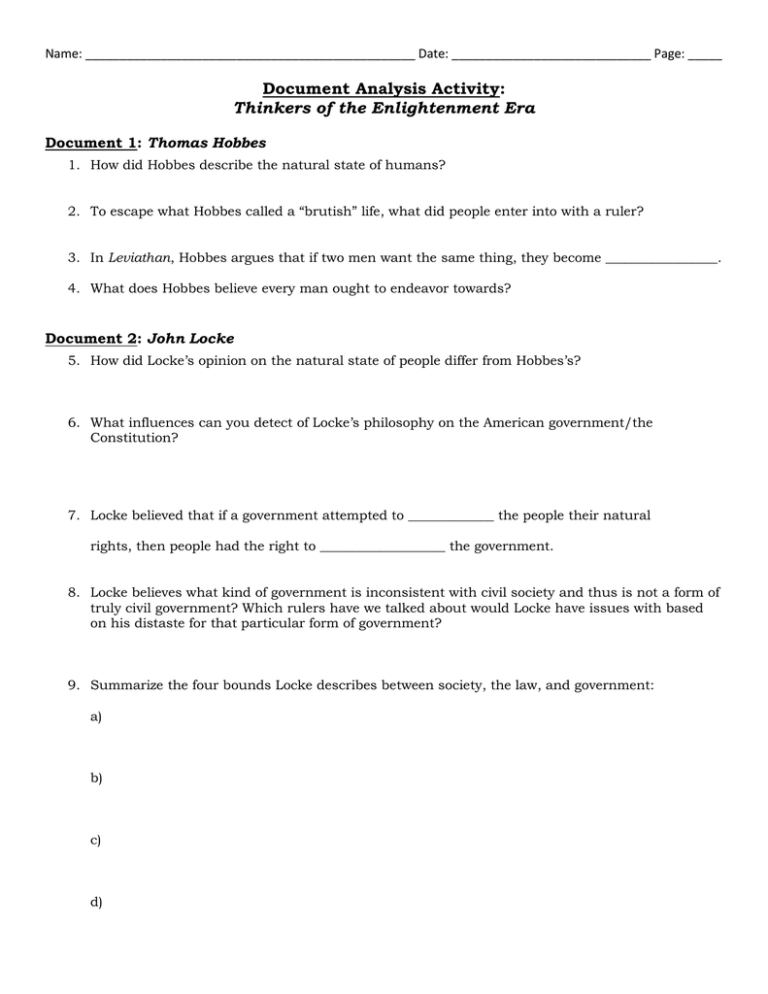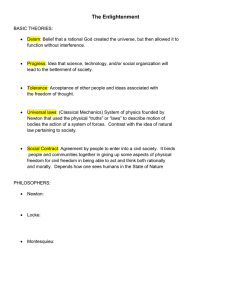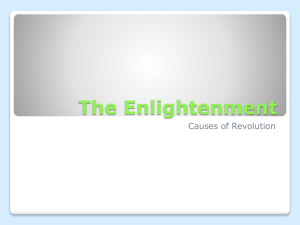Document 17599956
advertisement

Name: ________________________________________________ Date: _____________________________ Page: _____ Document Analysis Activity: Thinkers of the Enlightenment Era Document 1: Thomas Hobbes 1. How did Hobbes describe the natural state of humans? 2. To escape what Hobbes called a “brutish” life, what did people enter into with a ruler? 3. In Leviathan, Hobbes argues that if two men want the same thing, they become _________________. 4. What does Hobbes believe every man ought to endeavor towards? Document 2: John Locke 5. How did Locke’s opinion on the natural state of people differ from Hobbes’s? 6. What influences can you detect of Locke’s philosophy on the American government/the Constitution? 7. Locke believed that if a government attempted to _____________ the people their natural rights, then people had the right to ___________________ the government. 8. Locke believes what kind of government is inconsistent with civil society and thus is not a form of truly civil government? Which rulers have we talked about would Locke have issues with based on his distaste for that particular form of government? 9. Summarize the four bounds Locke describes between society, the law, and government: a) b) c) d) Document 3: Jean-Jacques Rousseau 10. What was Rousseau’s fundamental belief about people? 11. What does an ideal society look like to Rousseau? 12. When there is a passage from the state of nature to the civil state, what is substituted for what? 13. According to Rousseau, what kind of liberty truly makes man a master of himself? 14. Who should create laws in Rousseau’s eyes: the people or the government? Document 4: Baron de Montesquieu 15. What was one of Montesquieu’s main ideas about government? 16. Name two countries that possess elements in their governments of which Montesquieu would approved and explain why. 17. What are the three kinds of power Montesquieu believes are in every government. a) b) c) 18. Montesquieu writes “political liberty is the subject of a tranquility of mind [and] … in order to have this liberty,” the government must be “constituted” in a given way. According to Montesquieu, in what way should the government be constituted? 19. True or false: Montesquieu believes that legislative and executive powers can be united under one person and liberty can be successfully achieved. a) True b) False 20. Montesquieu believes “there would be an end to everything” if the same person or group of people exercised all THREE of these powers:






